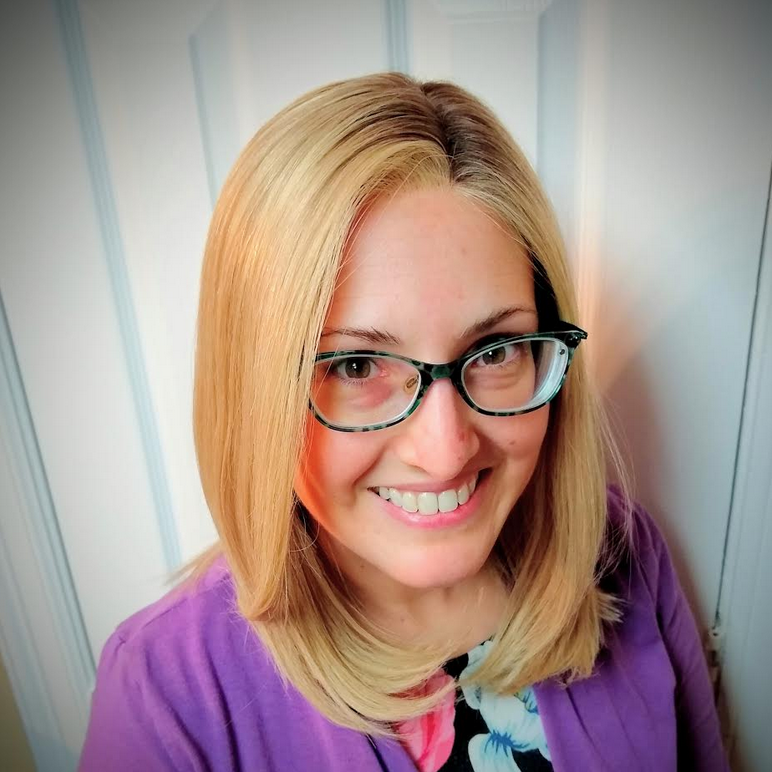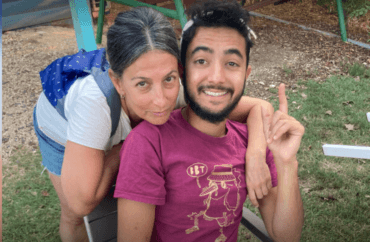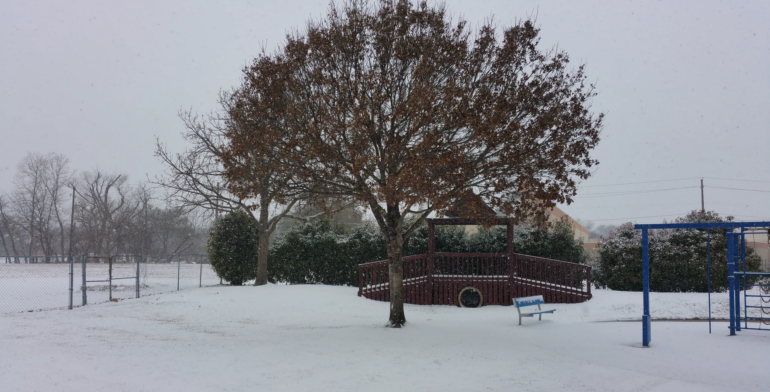
Texas Chabad Houses Fill the Void With Kindness in Wake of Disaster
Last month’s surprise Texas storm affected many in the state, but the small community of Austin was hit especially hard. “My biggest fear was at night. I kept checking on my kids, making sure they were warm and were breathing under all the heavy blankets. Thank God we were all safe.” Rivkah B. says, though she was not alone in her fear. Starting February 11th, intense cold and heavy snow cut power to millions of Texans. A once-in-a-generation winter storm incapacitated the entire state. Thanks to the hard work of the local network of Chabads, Austin was touched by kindness through this incredible hardship.
As ice had started to form on the roads, I avoided bridges and overpasses, feeling uneasy. Then the power went out. I went to pick up my daughters, who made a game out of counting how many tree branches had fallen due to ice accumulation. Parts of the roads were blocked, even on my alternate route. Upon our return, luckily the power had been restored, but the house had dropped nearly ten degrees in only 45 minutes. That night, it snowed 6 inches.
“I know I’m a Texan,” recounted Rebbetzin Mussi Levertov, of Chabad of Round Rock. “I lived in New York for several years. Northern cities know how to handle snow and ice. But it is such a rarity here. The second we lost power, we had to leave our home.” Houses in Texas are built to withstand and release heat. Lacking basements, rooflines are shallow and low attics are ventilated. Water pipes are buried close to the surface and overhead power lines are often entangled in trees. Austin had a few inches of snow two weeks before. Any resources we had were already used. With snow once every ten to fifteen years, there is no apparent reason to invest in snow clearing equipment. Austin is also part of an underground river that supplies the drinking water for San Antonio, so salting the roads would result in poisonous runoff. Usual temperatures for this time hover in the 70s and 80s, with a brief fluctuation into the 30s. When that happens, a popular local joke asks, “what are you going to wear for the week of winter?”
In the aftermath of the storm, Texans received harsh backlash on social media, claiming they were wimps in handling the cold. Some offered advice and recommended products. But when a whole city is shut down, how is it possible to find a generator or a wool sweater? “This was more than just cold,” said Mussi. “I have winter coats for my baby because we lived in New York. I don’t have a winter coat for my [4-year-old]. We don’t need it here.”
Rivkah B. lacked power for days. “Our house depends on electricity for cooking, to shower, pretty much for everything. We were also worried about our pipes after one of our pipes froze…We used our car to get some heat and charge our cell phones.” When they ran out of firewood, just a few inaccessible stores were open and none had firewood left. “Thank God for good neighbors, we finally got some firewood on Tuesday… we used whatever we could find to keep the fire [going].”
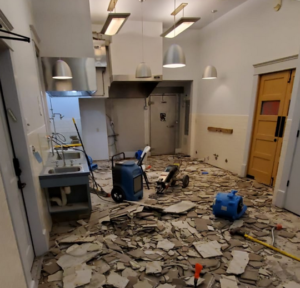 As the cold and snow worsened, the ceiling of the entry to the University Chabad House collapsed and a burst fire sprinkler flooded the sanctuary, living area, and kitchen. Grocery stores were unable to restock shelves as needy patrons waited for hours in lines outside. Temperatures dropped to 4℉ as people struggled to stay warm. Shabbat afternoon, rolling blackouts across the state were scheduled to begin. But when it came time to roll to the next section of the grid, authorities were powerless to do so at the mercy of the ice. More outages followed. Residents were asked to conserve the little electricity that was available: turn down your thermostat, turn off all extra lights and unplug anything you can. A water boil notice was issued, so millions more were left without water since they couldn’t use their stove. Stories poured in of fatalities caused by fires, carbon monoxide poisoning and horrific tales of accidents and hypothermia.
As the cold and snow worsened, the ceiling of the entry to the University Chabad House collapsed and a burst fire sprinkler flooded the sanctuary, living area, and kitchen. Grocery stores were unable to restock shelves as needy patrons waited for hours in lines outside. Temperatures dropped to 4℉ as people struggled to stay warm. Shabbat afternoon, rolling blackouts across the state were scheduled to begin. But when it came time to roll to the next section of the grid, authorities were powerless to do so at the mercy of the ice. More outages followed. Residents were asked to conserve the little electricity that was available: turn down your thermostat, turn off all extra lights and unplug anything you can. A water boil notice was issued, so millions more were left without water since they couldn’t use their stove. Stories poured in of fatalities caused by fires, carbon monoxide poisoning and horrific tales of accidents and hypothermia.
The city was paralyzed, emergency services were rendered incapacitated and national and state relief organizations were unable to help. Naturally, calls began coming into the Chabad. Rabbi Levi Levertov says, “An elderly couple called my parents after their water went out. My mother asked, ‘Do you need food, do you need anything?’ ‘We just need water.’” The call for help was passed to Rikki Hertz, rebbetzin of South Austin and Levi’s sister. “[They said] ‘We can’t leave the house, there’s ice everywhere, and we need water’…it was insane to think that they were parched in the 21st century because they couldn’t leave their house to get drinking water.” Taking to Facebook, the Hertzes asked for volunteers. They were able to quickly find someone who was willing to brave the dangerous conditions and bring water.
Together, the Chabad families of Austin and surrounding areas worked tirelessly, bringing hot meals and water to stranded Texans. Rabbi Mendy and Mussy Levertov rallied young adults to the cause while they did their best to cook meals for the masses, even though they were without power themselves. “It’s pretty amazing, the volunteers that were willing to go out,” Rabbi Levi recounted. “Even on the first night, there were a few volunteers who were ready to do it, to drive out in the ice and the snow. [They] were basically risking their life to help others. The roads were so scary.” Mussi was worried for her husband as he drove. “My husband knows how to drive in the snow. He’s a Montrealer. But…[other people] think it’s like driving on sand, where you can go really fast. But it’s really like driving on water, where… you don’t do anything and you just breathe.” She added, “I have been in very very cold places and this was the worst experience I have ever had with snow!” Yet, through all the fear and obstacles, they and their volunteers persevered.
Rabbi Yosef and Rochel Levertov, the heads of the Chabad of Austin, never seemed to be able to put down their phones. People were begging for help: meals, water, and relocations. My own family took in a friend whose power and heat had been out for days and had been bouncing from place to place. Parents called from out-of-town, pleading with Rochel to find places for their young adult children to stay, most with no prior affiliation with the Jewish community. Traversing the snowy, icy roads was near impossible. “Five neighbors from my apartment helped [Rochel and I] get out of a situation where our tires were just spinning.” Gloria M. explained. “We were needing to make one last delivery. 30 minutes of spinning side to side eventually got us out of our parking space.”
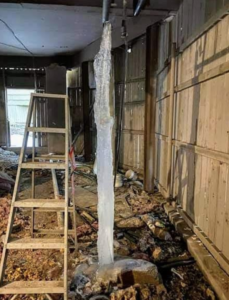 Rabbi Levi shared, “My parents get a call from this guy [who] needs food. They send over a young adult volunteer, Brittany. The [older gentleman] is basically sitting alone in his apartment…confined to a wheelchair. He’s literally freezing cold in a wet, disgusting, leaking apartment. She gave him a warm meal, [and then] spoke to management. They moved him over to another apartment. A [group] of YJP volunteers were schlepping all of his things from one apartment to the other because his apartment got completely ruined.”
Rabbi Levi shared, “My parents get a call from this guy [who] needs food. They send over a young adult volunteer, Brittany. The [older gentleman] is basically sitting alone in his apartment…confined to a wheelchair. He’s literally freezing cold in a wet, disgusting, leaking apartment. She gave him a warm meal, [and then] spoke to management. They moved him over to another apartment. A [group] of YJP volunteers were schlepping all of his things from one apartment to the other because his apartment got completely ruined.”
Rivkah and her family had struggled through a freezing Shabbat. “No electric power and limited food but thank G-d we had water…The next day, we had power for about 2 hours and I warmed up some milk for my kids; nothing like a nice warm drink during cold days. We were happy at that moment [before the] power went out again.” Rochel Levertov was able to bring Rivkah and her family a warm meal. “Rochel Levertov and Gloria defeated the icy roads and showed up at our place bringing a warm meal (more like a feast!) and firewood, I was so thankful and always will be.”
A few days later, it was back in the mid-80s. I was finally able to go for a walk. You might never know that anything had happened by looking around, but you could smell it. All of the landscaping was devastated. Large blue agave, prickly pear cacti, tropical palms, rosemary bushes and roses were all blackened and rotting. Work crews were out in force, fixing power lines and replacing burst water mains. “The fact that the water shortage is still here, it’s two weeks post and you can still only buy two cases of water,” is what shocks Mussi. Local nonprofits have set up shower and laundry stations throughout the city and free water can be found at area high schools and churches.
Through it all, Jewish life continued. Rabbi Levi said, “Literally the first night of the storm when there was not another person on the street, my mother took someone to mikvah. My mother wasn’t going to drive, so my father took them both in the car. And they were driving around in the blizzard to get downtown to the mikvah when nobody else was on the road. [Even I] thought they were crazy.” But they did it. Thanks to the helpers, this hard time became a little easier.
To support Chabad relief efforts in Austin, please visit ChabadAustin.com.
If you found this content meaningful and want to help further our mission through our Keter, Makom, and Tikun branches, please consider becoming a Change Maker today.




